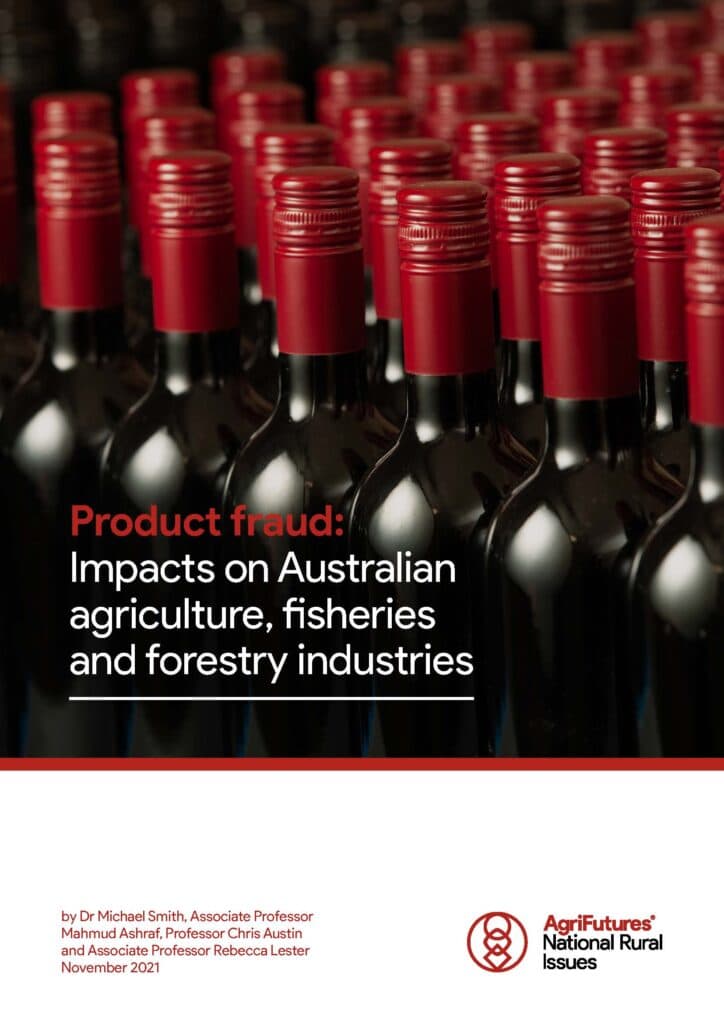Maintaining the quality and safety of Australian food and fibre products for domestic and export markets is paramount. Product fraud is on the rise and has the potential to cause significant harm to Australia’s reputation for producing high-quality goods and ultimately reduce returns at the farm gate. Globally, food fraud is becoming a significant challenge, estimated to cost $40-50 billion a year, and $2-3 billion in Australia alone.
In aspiring to reach the National Farmers’ Federation’s target of $100 billion in farm gate value by 2030, Australian producers need to be able to mitigate incidents of product fraud to ensure that trust is maintained with consumers and that producers can capitalise on changing consumer and market trends.
This report, written by Deakin University, explores the range of product fraud cases – from simple substitution or incorrect labelling of a product to more sophisticated methods that result in consumers paying a premium price for a counterfeit product.
High-value products such as beef and seafood are particularly at risk of substitution, as well as the use of fillers to increase volume and mislabelling about provenance and quality. The drivers behind product fraud are commonly linked to shortages or constraint of supply in raw ingredients, and while our ability to detect fraud continues to improve, there is a need for a whole-of-supply-chain approach to combat the problem.
But while the problem is real, and on the rise, the report highlights technology solutions that exist and are ready to be deployed along the supply chain, to reduce the incidence of fraud. A plethora of solutions are needed to make an impact on global fraud. A coordinated supply chain approach is an important first step to mitigate the potential risks and protect Australia’s reputation in domestic and global markets.





